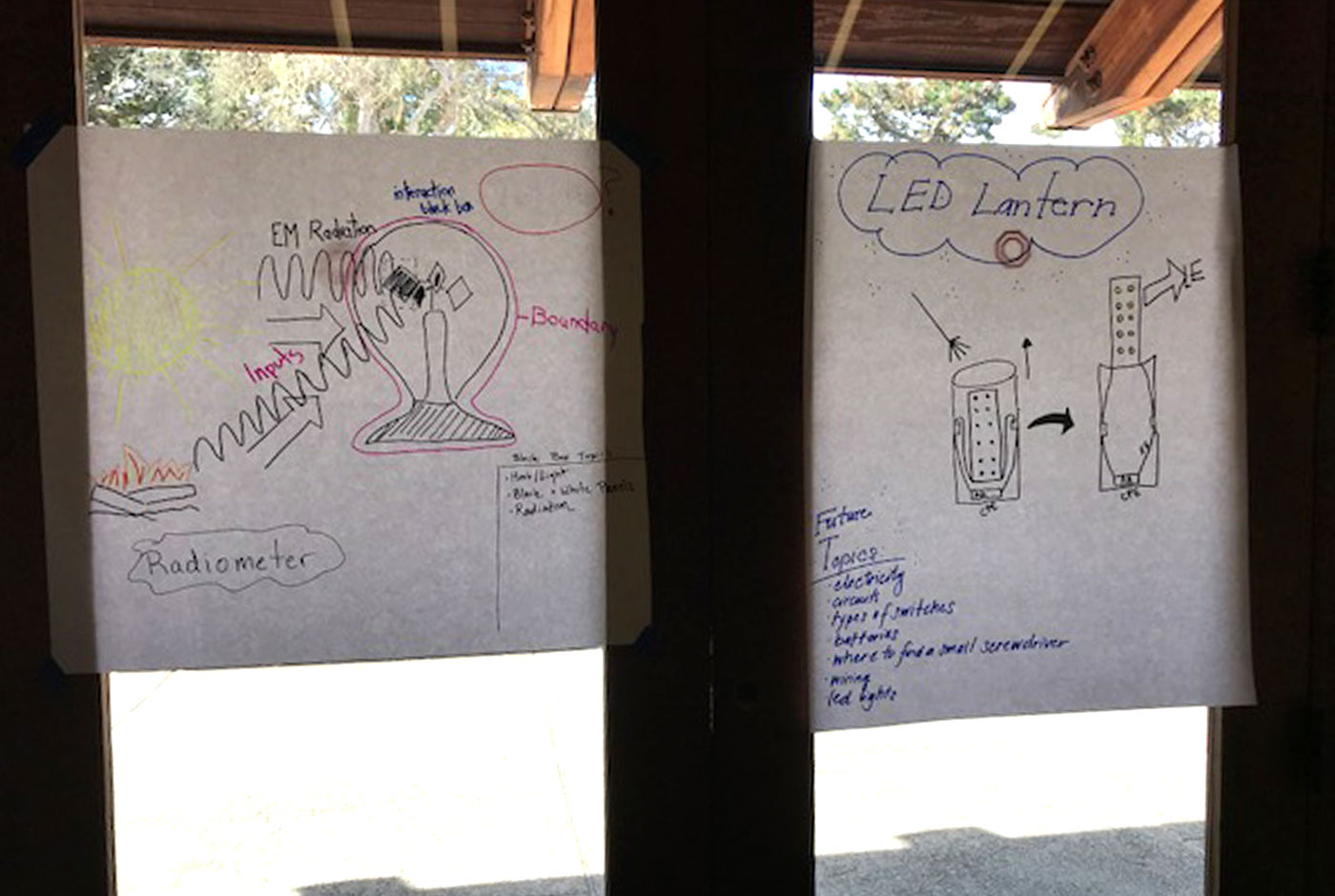On October 2, Danielle Gothie and Doris Rivera of the ISEC professional development team traveled to Monterey, CA with two members of the Teacher Leader Cadre, Noelle Bowyer (5th grade teacher at Pojoaque Valley Intermediate School) and Rachel Gersh (4th grade teacher at El Camino Real Academy), to attend Camp MSS. Based on WestEd’s Making Sense of Science week-long trainings, which many New Mexico teachers have attended over the past few summers, Camp MSS is a three-day intensive course that gets to the heart of science content areas in a condensed time frame.
The group attended a variety of courses focused on topics from NGSS Crosscutting Concepts of Systems, Stability and Change, as well as understanding Earth Science content in areas of Earth and Sun, Earth’s Water, Waves, and Cells.
“It was an incredibly humbling and rewarding experience as we worked with trainers who pushed us in and out of our comfort zones,” said Danielle. “We also felt blessed to work with teachers and science educators across the nation who believe in inquiry learning and are pushing this agenda in their districts. You can feel proud that Northern New Mexico was well represented.”
In addition to deepening their understanding in specific content areas, each member of the group was trained as a facilitator. Noelle and Rachel went on to train 22 other NM elementary teachers on the Earth’s Water curriculum where participants investigate the chemical structure of water, explore water at the particulate level, and examine what happens with water during various interactions in the earth system. Connections are made among the disciplines and big ideas of science, and techniques are shared for using models to explain details.
Camp MSS group enjoying some beach time (left to right): Noelle Bowyer, Doris Rivera, Rachel Gersh, and Danielle Gothie
Here are Noelle’s reflections on the training:
“The work offered opportunities to learn new content, but for me the big takeaways were beyond the content. Throughout the week, as I engaged in the work and was mindful of my own learning, I couldn’t help but think of my students and felt more connected with their experience when faced with challenging work. Experiencing the science practices was incredibly valuable so that I could connect practice with content and see how each supported my overall learning. For instance, when I struggled to make sense of dense vocabulary while learning genetics, the use of models was crucial for me as a learner. The science practices supported my learning throughout the week as I tackled content across the spectrum of my prior experience and comfort levels.
“Other big takeaways were rooted in reflecting on the work through the lens of a facilitator, based on my experience and the experiences of others. After the week, I had a deeper appreciation for facilitator moves such as questioning, supporting student-student discourse, wait/think time, and time and materials management. What really resonated with me was the idea that it is not the role of the facilitator (or students/participants) to ‘know all’ or need to ‘know all.’ It is better when he/she doesn’t. Being part of the learning helps connect the facilitators with the learning process rather than associating the facilitators with the ‘right answer.’
“It is important for teacher participants to have that modeled, since many of us can slip into the ‘all-knowing’ role which inevitably diminishes the safe learning environment that we know is critical.
“The list of takeaways could go on and on, but these are the ones that I think will impact me as a teacher and facilitator the most. The week was very rich, and I’m thankful for the opportunity to participate.”
